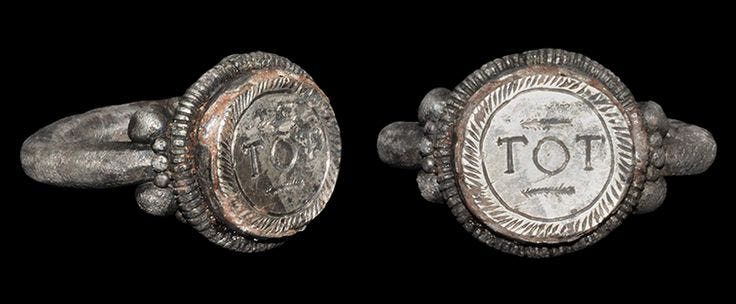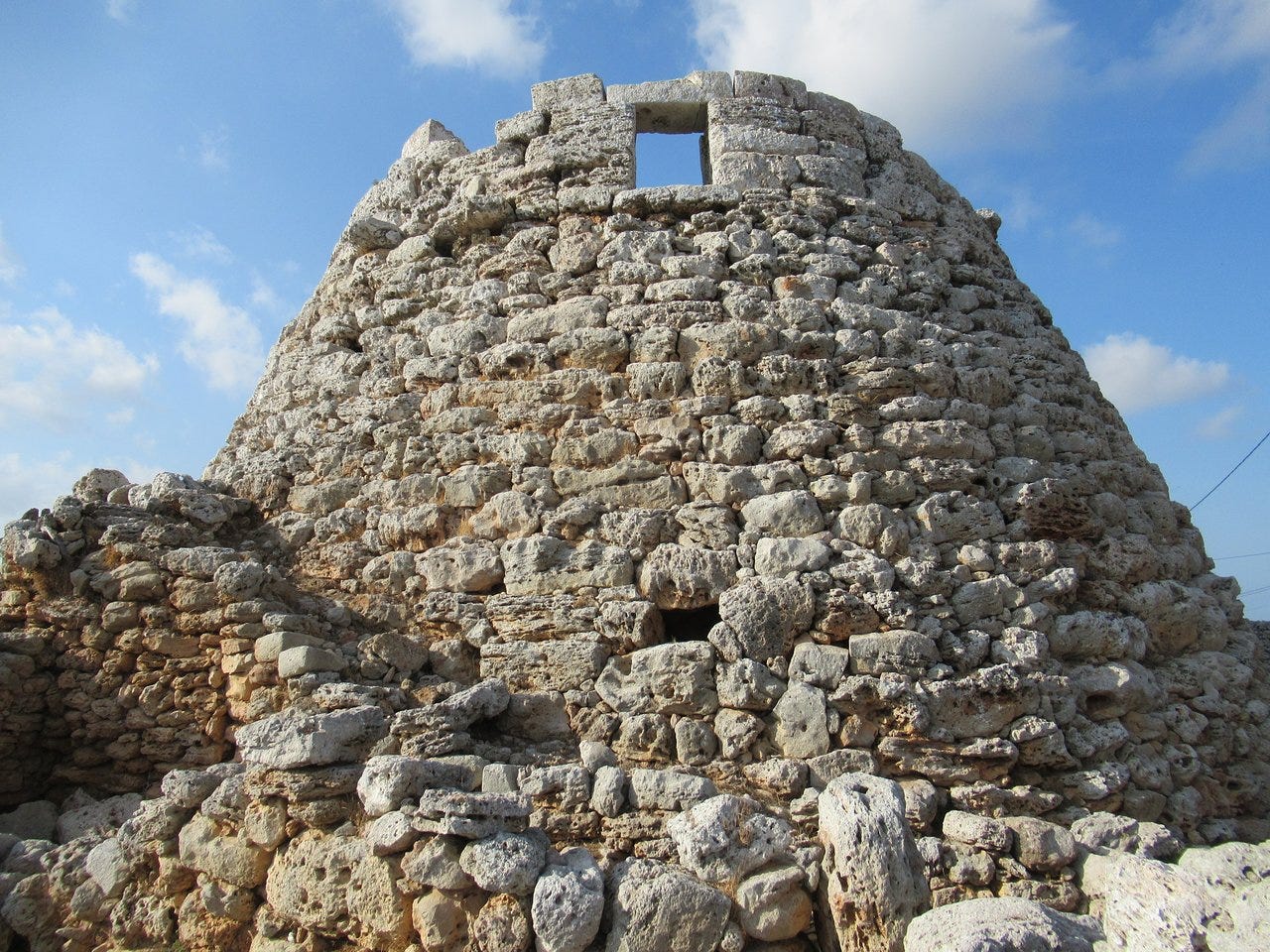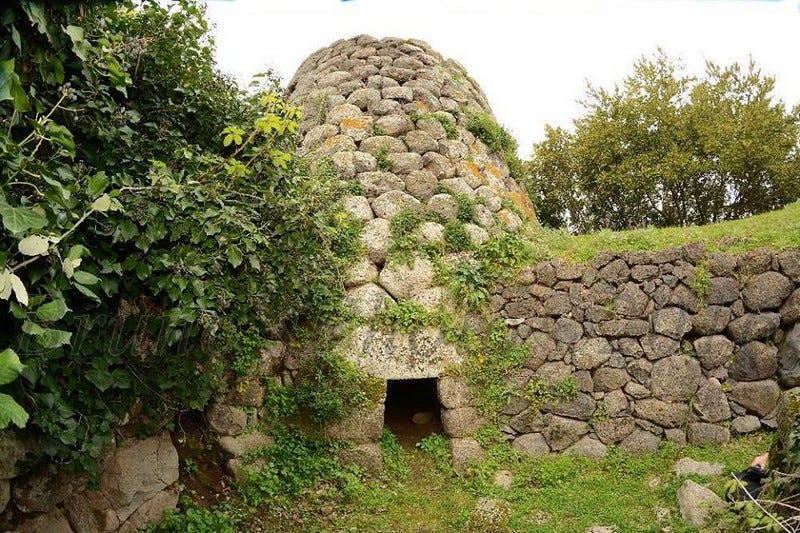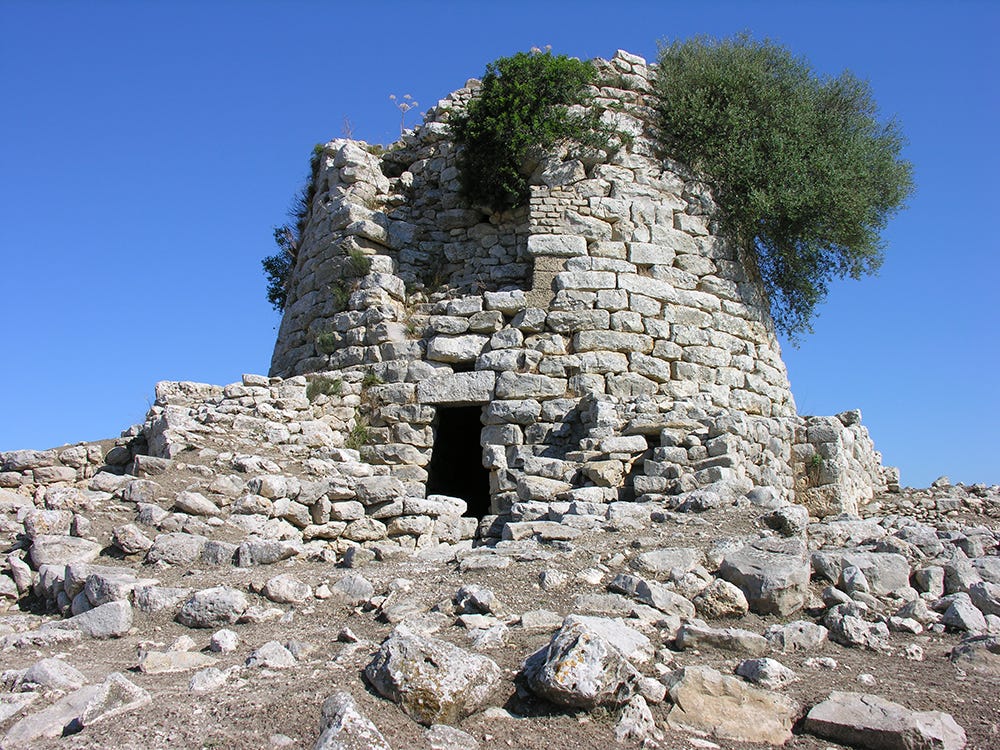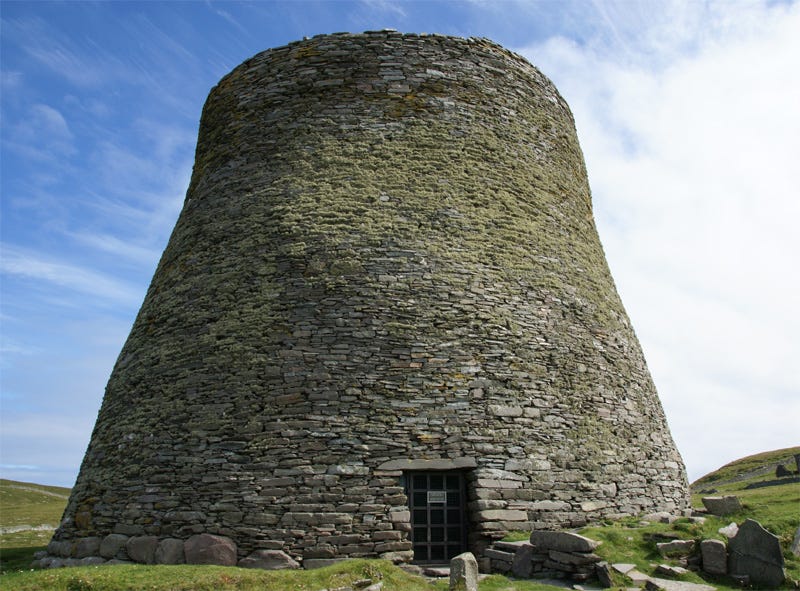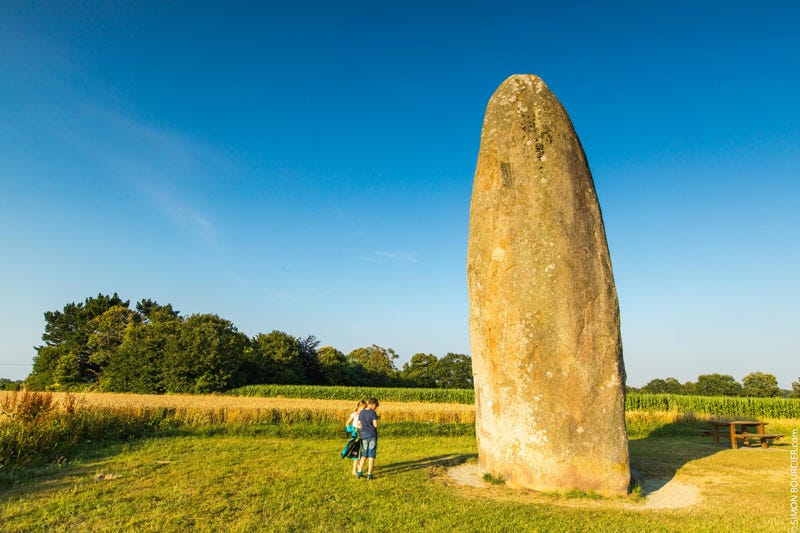Fresh Batch #132: The Armorican Dream
How to Pronounce Armorican Letters and Why This Language May Help Rectify European History
The following is from Archaeologia Britannica (p. 180), where Welshman Edward Lhuyd focuses on Armoric Grammar, published by Jesuit Julian Manoir and translated by M. Williams, Sublibrarian at the Ashmolean Museum. He wrote (Sect. I. ch. 1.), “It seems expedient to alter the ancient manner of the British Writers, in the Armoric Language; and to write it as ‘tis pronounced: For ‘tis impossible for the Learners of this Tongue, and very difficult even to the Natives to read the Ancient Books. How shall any one (for example) read these Words written after the old Orthography, Ar goaff, The winter; An haff, The summer; Da bezaff gueneff, An eff, Ma tat? Is it not much more convenient to write as the words are pronounced, Ar goân, An hân, Da veza guenên, An ên, Ma zat? The French have not long since experienced this way of writing according to Pronunciation the most convenient. In the British Language there are diverse mute Consonants, which are occasionally changed; in somuch that one of them is varied, as the propriety of the Language requires, into several others: Now the ancient Britans had no regard at all to this change in their Writings, but always writ the word as ‘tis found in the Dictionary. T (for example) in the word Tat [a father] after ma [my] is chang’d into z, and after e [his] into d, so that they read and speak ma zat [my father] and e dat [his father] but the Ancients always writ ma tat, e tat. Who therefore, not having perfect Knowledge of this Language, could ever read it?”
Tat is philologically Dad because the T interchanges with D. I’ve demonstrated that this is Tot, which is Thoth and Teut, as in Teutates, from whence comes Teutonic. I recently addressed this and I didn’t know it would come up again so soon. Tat is also another name for Buddha, and this archetype also went by the name Tot in Britain, which is seemingly connected to Thoth and Teut, as in Tuetates.
Buddha signifies old man, and thus wise man, which Patriarchs or fathers are generally thought to be. Buddha has as many names as there are regions in Asia, so I am admittedly cherry-picking. There aren’t any groundbreaking examples of cultural diffusion to provide, other than to make note of this name possibly being an example of cultural diffusion. But the derivatives of Tot are most prominent in European culture, so I suggest this indicates Celtic-Roman diffusion to Egypt and Asia, should more evidence emerge to confirm it is an example of diffusion and not merely coincidence.
Lhuyd wrote of the pronunciation (Ib. Sect. 2.), “1) When this Accent [ˆ] occurs before the Letter n, pronounce not that n as others with the motion of the Tongue, but rather in the Palate and Nose; as, An hân, The Summer, Ar goân, The winter; Guenên, With me; An ên, Heaven.
“2) When you find ch with an Apostrophe between, thus [c’h] pronounce it gutterally, as Dec’h, Yesterday; Sec’het, Thirst.
“3) Ch without this Apostrophe is pronounced as ch in the French [or sh in the English] as, Tachou, Nails; Renchou, Rents, revenues.
“4) Z is pronounced as the Greek Zeta, viz. Softer than s; as, Beza, To be. [Z was anciently pronounced both by the Armoric Britans and Cornish as the Welsh Dh, and sometimes as Th, as I have observed by collating manuscripts and diverse words are still so pronounced. (This is seen in other locations set up by the Etruscans, who are the Pelasgians, such as Ibiza, pronounced Ee-bee-thuh, in the Balearic Islands.)
As a brief aside, you will see their Nuraghic footprints in Italy, Spain, and Britain.
Nuraghe Menorca, Balearic Islands (Spain)
Nuraghe Longu di Padria (Sardegna)
Nuraghe Is Paras (Sardegna)
Mousa Broch (Scotland)
Lhuyd continued, (Ib.), “5) Ez in the Termination of words ought not to be pronounced as es in Latin, but with a lower accent; as Guirionnez, Truth.”
This may be anecdotal but the root of Truth in Armoric, guir, is philologically the same as war, which presents itself as guerre in French and guerra in Spanish. I thought it was funny that, in Mexican Spanish, which obviously has no antiquity, the word guerro means blonde, a derogatory word that’s similar to gringo.
“6) Es at the end of a word is sometimes pronounced as in the Latin, and sometimes with an Accent somewhat lower. Words that have an Acute Accent in the Termination, are pronounced as in the Latin; as, Maguerés, A nurse; Maoués, A woman; But such as are marked with a Grave, somewhat lower; as, Guès, Trees; Pès, Pease (Peace); Lès, A haunch or hip.
“7) When two Vowels come together, and one of them is distinguished with two small points, you must not make a Dipthong of them, but pronounce each distinctly; as, Aü, The liver; Eür, An hour.
“8) When either the Letter n in the Termination, or the Vowel immediatly preceding, is distinguished with a line above, pronounce the n as if double; as, Gourēn, A wrestling or struggling.
“9) In the true pronunciation of the British, the Penultima is accented.”
Why am I putting this out there? Because Armorica is a significant location to the spread of The Real Universal Empire, whose origin was Italy. There, things like Menhir de Champ-Dolent are located, as well as the Carnac Stones.
Nothing satisfactory is known about this. According to Wiki, it is not precisely dated, but recent scholarship suggests that Brittany's menhirs were erected c. 5000–4000 BC.
It is just north of the Bay of Biscay, home to the Basque people, whose language is Spanish Phoenician, as opposed to the Irish, whose language is Sicilian Phoenician.
This corresponds with the settling of these regions by the Etruscans (Pelasgi). Since the languages are so different, it’s possible the Bay of Biscay was settled first, and, having been established, the ensuing waves of Etrusco-Phoenicians went directly to Britain from Italy, thus taking with them the Punic, rather than the Basque language, which is a slow transition of the Etrusco-Phoenician from Cadiz. The Basque people appear to have been the product of the Etrusco-Phoenicians and the indigenous people of Spain, if there were any. But as far as language goes, they’re using Etruscan words, which is of Pelasgian original, and is Phoenician. No Hebraists have demonstrated affinity to the ancient Italian languages, nor do they have any similarity to the Indo-European, save what the descended Latin language contributes to the rest of the world.
If you are not a paid member, you’ve only seen the tip of the iceberg in terms of the artifacts and images this Substack provides to support these suspicions. Read or listen to The Holy Sailors, and then you’ll be primed for this paradigm-shifting information that rectifies European history.
If we’re to advance in our knowledge of history, researchers must look at the languages with the perspective provided by my work, as opposed to the presumptions they were taught by the education systems, which have been cultivated under the umbrella of Mosaic history.
Become a member to access the rest of this article.
Keep reading with a 7-day free trial
Subscribe to Ancient History, Mythology, & Epic Fantasy to keep reading this post and get 7 days of free access to the full post archives.





